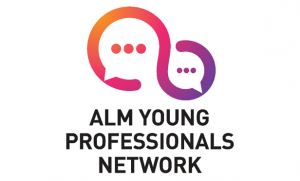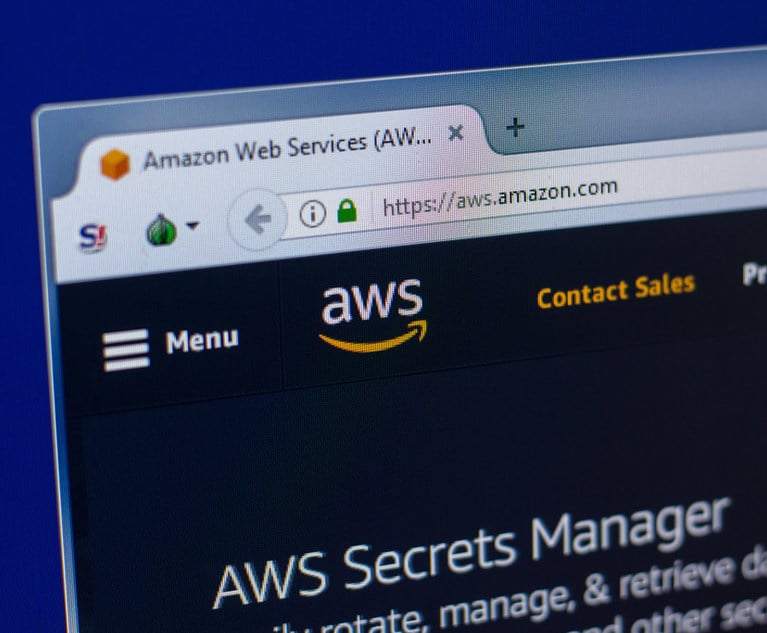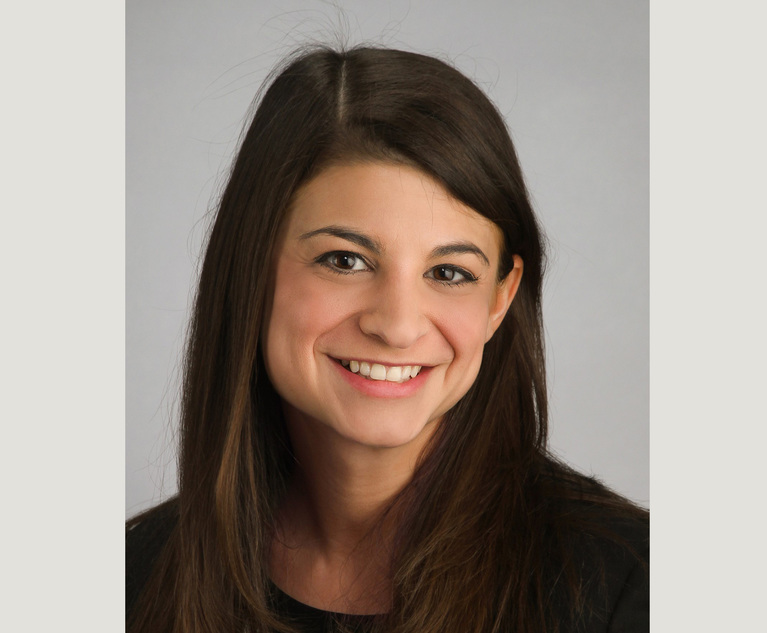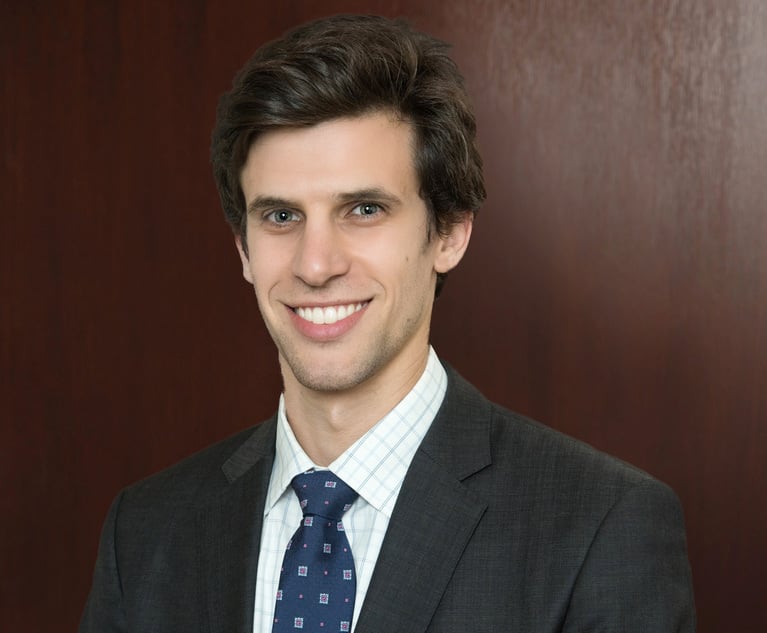Christopher Adams, 44, Squire Patton Boggs
Office: Washington, D.C.
Practice area: Intellectual property and technology.
Law school and year of graduation: University of Baltimore School of Law; graduated in 2006.
How long have you been at the firm? Twelve years and nine months.
How long were you an associate at the firm? I was an associate for approximately six years and four months, and an of counsel for approximately six years and three months.
Were you an associate at another firm before joining your present firm? No. I was a nontraditional law student who worked a full-time job in the information technology industry while attending law school part time at night. I joined Squire Patton Boggs shortly after passing my bar exam and resigning from my IT position.
What year did you make partner at your current firm? 2021.
 Chris Adams. Courtesy photo
Chris Adams. Courtesy photo
What’s the biggest surprise you experienced in becoming a partner? I am still in awe at the title “partner” being associated with my name. In the short term that I have been a partner, I am still intrigued about how the title has changed perception, both internally and externally. For example, on calls, my partner colleagues have now started referring to me as “my partner” instead of “my colleague.” I was also surprised, humbled and inspired by the amount of support I received from our administrative professional staff and associate body, many of whom were in the trenches with me at various points of my career, and who were excited by the promotion of homegrown and diverse talent. I think this is a reflection of Squire Patton Boggs’ commitment to the importance of nurturing and promoting diverse professionals.
Another pleasant and moving surprise was a congratulations call I received from my niece/goddaughter. During the call, my niece stated that she was really proud of me because she had seen people being promoted to partner on TV and now this was happening to someone in her family. My promotion has increased her motivation to take the LSAT and follow in my footsteps, as she was encouraged that perseverance and hard work had resulted in a family member making partner at a law firm.
What do you think was the deciding point for the firm in making you a partner? In my case, I do not believe there was a single “deciding point.” I was fortunate enough to be in a practice group where the leadership supported my business development efforts and developing my practice niche as an of counsel. Over time, I was provided with increased responsibilities until my firm’s leadership had confidence that I was operating at a partner level. Throughout my career at the firm, I was also fortunate to be surrounded by collegial partners, senior attorneys, current and past firm associates and other professional staff whose support resulted in this promotion. I was also fortunate to be supported by our talented administrative support staff, whose assistance ensured that I was able to step up when presented with any new challenges and opportunities.
Describe how you feel about your career now that you’ve made partner. I am excited and humbled to achieve a goal that I set forth after graduating from law school, with the support of my family and my talented colleagues. I feel even more invested in both my career and the firm, and I am excited about the challenges and opportunities ahead as I continue to grow as a partner. When I found out that I had been promoted to partnership, a well-respected and influential diverse partner at the firm extended his congratulations to me and reminded me that as Nelson Mandela said, “After climbing a great hill, one only finds that there are many more hills to climb,” and so I should take this as an important step in the journey, but not the destination.
What’s the key to successful business development in your opinion and how do you grow professionally while everyone is working remotely? Business development is about building, maintaining and nurturing relationships, both within the firm and outside of the firm. For external relationships, network with peers, clients, and other individuals that you encounter in social or other interactions. Make time to know these contacts and check in with them periodically, and not necessarily when you believe they need your services. Internally, build and strengthen your network by finding opportunities to collaborate with your talented colleagues, whether on thought leadership content, client matters or pro bono projects. If your colleagues know you and know what you do, it is more likely that they will call you when issues in your realm of expertise arise.
I start most calls with my clients by making time for small talk and not plunging straight into business. I inquire about their families, current goals and other interests outside of work, which may be important to such clients. Occasionally, some facts from this portion of the conversation can provide context for other parts of the business discussion.
I am also fortunate enough to be both an early bird and a night owl, which has helped my ability to support clients in multiple time zones.
What’s been the biggest change, day-to-day, in your routine since becoming a partner? Because I was a senior attorney for several years, the changes have not been as pronounced as for some attorneys. I think, however, the biggest change that I have noticed so far is that as a partner, you are a part-owner of the firm, and so your mindset changes from thinking like an employee to thinking like an owner.
Do not be discouraged by pursuing a nontraditional law student path to the law, as this path will take perseverance and hard work to achieve your goals. The path to partnership takes a village. Surround yourself with talented and collegial professional colleagues and support staff, who will ensure that you do not hide your light “under a bushel.”
Who had the greatest influence in your career that helped propel you to partner? Besides my supportive spouse and family, many of my talented and collegial partners, including, without limitation, Deborah Lodge, Tamara Fraizer, Petrina McDaniel, Alethia Nancoo, Douglas Goldhush, Jonathan Pavony, Michael Curto and David Elkins, who helped me develop my practice area and my business development acumen, and Benjamin Wilson, a partner at Beveridge & Diamond, who had the greatest influence in developing my expectations about what it takes to be a partner. Ben took me under his wings as a mentee in 2017. During our multiple lunch meetings, he challenged my existing notions about business development and forced me to rethink both my business development and my networking approach, including developing and updating a business plan that incorporated this new approach. Ben also encouraged me to approach the partnership as applying for a new job with different responsibilities (i.e., an owner versus an employee) and not as merely a promotion.
What advice you could give an associate who wants to make partner? (Would your advice be any different now than before COVID-19?) Be focused on your goal and take the time to hone your skills so that you can develop a high-quality work product. Do not be discouraged by the workload, which may appear to be daunting at times. Strive to work with your senior colleagues who are talented writers, as the comments and feedback will help you improve your writing over time. Have a positive mindset and be respectful of both your professional colleagues and your administrative supportive staff. Most have been at the firm longer than you and they have lessons to teach you that will be helpful to your career development. Advocate for your career so others will know the types of work that you want to do.
How do you network at a time like this? I collaborate with our talented colleagues from multiple practice areas related to technology to generate relevant articles and blogs, in forums such as our practice’s Global IP & Technology Law Blog.
With a lot of contacts and potential contacts experiencing videoconferencing fatigue, my approach has been to pick up the phone or use emails to connect with people to find out about how they and their respective families are faring with the current challenges. To the extent that such contacts/potential contacts require assistance, I provide them with pragmatic information and estimates, cognizant of any challenges they may be dealing with at this challenging time.
I also work with partners in practice areas adjacent to intellectual property and technology to develop deep knowledge in certain topics that may be relevant to technology clients.
Knowing what you know now about your career path, what advice would you give to your younger self? Do not be discouraged by pursuing a nontraditional law student path to the law, as this path will take perseverance and hard work to achieve your goals, but you will do so. The path to partnership takes a village, so be grateful for your supportive spouse and family, and surround yourself with talented and collegial professional colleagues and support staff, who will ensure that you do not hide your light “under a bushel.”
Find more career development insights from our ‘How I Made It’ Q&A series on law.com.
 Check out Advancing Future Leaders, ALM’s Professionals Network on LinkedIn. We are excited about this pivotal group. Click here to join.
Check out Advancing Future Leaders, ALM’s Professionals Network on LinkedIn. We are excited about this pivotal group. Click here to join.
NOT FOR REPRINT
© 2024 ALM Global, LLC, All Rights Reserved. Request academic re-use from www.copyright.com. All other uses, submit a request to [email protected]. For more information visit Asset & Logo Licensing.











